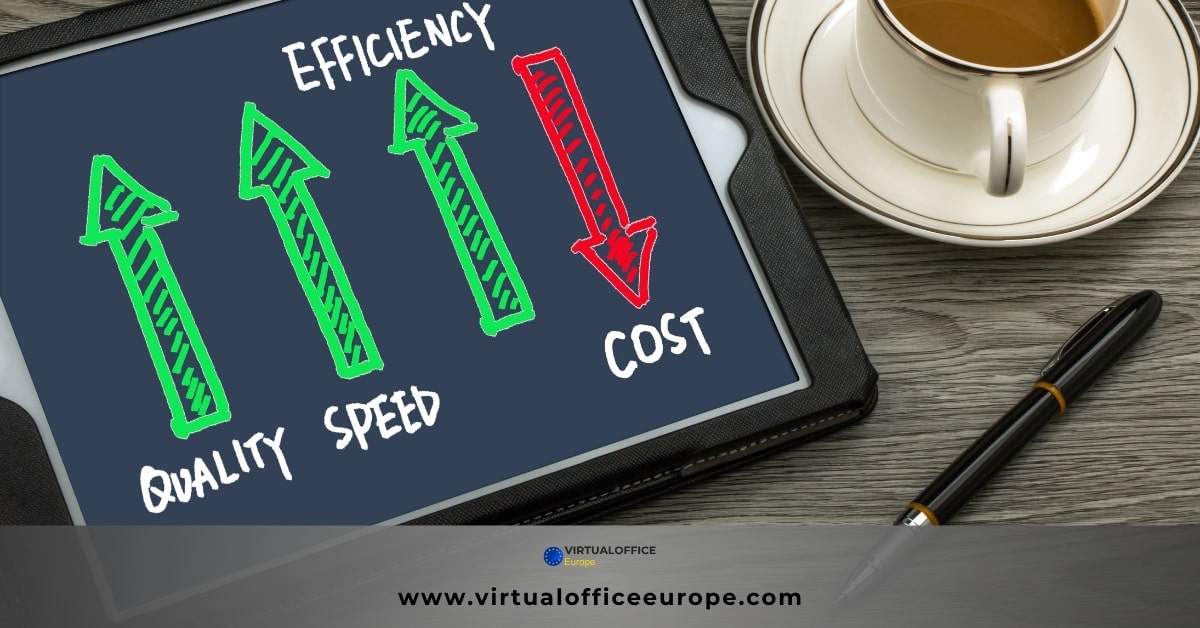In today’s fast-moving digital world, where working from home is becoming more common, business owners often ask themselves an important question – “Should I use virtual offices for my business license?” This question leads into a complex area, where whether a virtual office works for you depends on the kind of license and the rules set by local, state, and federal governments.
Let’s explain what a “virtual office” is. Imagine it as a business place without needing a real office space. It’s used for getting mail, registering your business, and looking professional. But, when it comes to understanding business licenses, things become a bit more complicated.
The Birth of Virtual Offices
The rise of technology and the advent of robust digital communication platforms not only reduced the necessity for a physical office but also empowered professionals to redefine their work environments. Virtual offices, born from this transformative era, not only addressed the evolving needs of a changing workforce but also catalyzed a cultural shift towards embracing flexibility and remote collaboration. This shift marked a pivotal moment in how businesses conceptualized the workplace, fostering an environment where innovation and adaptability became paramount
Understanding the Essence of Virtual Offices
A virtual office isn’t just a mailing address or a remote workspace; it includes a range of services meant to replicate the functions of a traditional office in a virtual setting. These services often include a professional business address, mail handling, phone answering, and access to meeting spaces when needed. The core idea is to give businesses the benefits of a physical office without the constraints of a fixed location.
Key Features Shaping the Evolution
Professional Business Address:
A virtual office provides businesses with a fancy address, showing credibility and stability. This is particularly valuable for startups and small businesses looking to seem professional without the cost of a physical office in prime locations.
Mail Handling Services of Virtual Offices
Efficient mail handling is a crucial part of virtual offices. Providers make sure that businesses receive, process, and forward mail quickly. The use of technology allows for mail digitization, letting professionals access their mail from anywhere in the world.
Telecommunication Services:
Virtual offices often include phone answering services, ensuring that calls are professionally handled even when team members are scattered. This helps in maintaining a cohesive and reliable image for the business.
Flexible Workspace Access:
While the virtual office is rooted in the digital realm, many providers offer access to physical workspaces, meeting rooms, and coworking areas. This flexibility allows professionals to have a physical space when needed, promoting collaboration and teamwork.
Remote Work and Technology’s Role in Shaping the Landscape
The evolution of virtual offices is closely tied to technological advancements. The rise of cloud computing, high-speed internet, and collaborative tools has empowered remote teams to collaborate seamlessly. Video conferencing, project management platforms, and virtual collaboration spaces have become integral components of the virtual office ecosystem.
The increasing acceptance and prevalence of remote work have played a pivotal role in the evolution of virtual offices. Organizations, compelled by the need to attract top talent and adapt to changing workforce expectations, have embraced remote work policies. A Virtual office provide a structured framework for remote work, allowing employees to stay connected and maintain a professional image.
Benefits of Virtual Offices
The evolution of remote offices is fueled by the myriad benefits they offer to businesses of all sizes. Some of the key advantages include:
Cost Efficiency:
Remote offices eliminate the need for physical office space, reducing overhead costs associated with rent, utilities, and maintenance. This cost efficiency is particularly attractive to startups and small businesses operating on lean budgets.
Global Presence:
With a virtual office, businesses can establish a presence in multiple locations without the need for physical expansion. This global reach enhances market visibility and facilitates easier entry into new markets.
Work-Life Balance:
For employees, virtual offices contribute to improved work-life balance. The flexibility to work from anywhere reduces commuting time and allows professionals to tailor their work environment to suit their preferences.
Scalability for Virtual Offices:
A virtual office offer scalability, allowing businesses to easily adapt to changing needs. Whether scaling up or down, virtual office services can be adjusted accordingly, providing a level of flexibility rarely achievable in traditional setups.
Future Trends and Innovations
Looking forward, the evolution of virtual offices shows no signs of slowing down. Anticipated trends and innovations include:
Enhanced Virtual Collaboration Tools:
Continued advancements in virtual collaboration tools will further bridge the gap between physical and virtual interactions, fostering a sense of connectedness among remote teams.
Augmented Reality Workspaces:
The integration of augmented reality (AR) may redefine virtual workspaces, providing a more immersive and interactive experience for remote professionals.
Blockchain for Security and Authentication:
Blockchain technology may be used to enhance the security and authentication processes within virtual offices, addressing concerns related to data privacy and identity verification.
AI-Powered Virtual Assistants:
The integration of artificial intelligence (AI) into virtual office services could lead to more sophisticated virtual assistants, streamlining administrative tasks and enhancing overall efficiency.
Virtual Offices: Challenges and Considerations
While the evolution of virtual offices brings numerous benefits, it is not without challenges. Organizations must navigate issues such as:
Security Concerns:
Remote officed require robust cybersecurity measures to safeguard sensitive data and ensure secure communication channels.
Employee Engagement:
Maintaining a sense of belonging and engagement among remote teams remains a challenge. Strategies for fostering team cohesion and communication are essential.
Regulatory Compliance:
Businesses utilizing virtual offices need to navigate the regulatory landscape to ensure compliance with local, state, and international regulations.
Virtual Offices: Embracing a Hybrid Future
The changing face of virtual offices reflects a broader shift in the way we think about and approach work. As technology continues to advance and societal attitudes toward remote work evolve, virtual offices will play a central role in shaping the future of workspaces. The journey from a simple virtual address to a comprehensive suite of services highlights the adaptability and resilience of virtual offices in meeting the diverse needs of today’s businesses.
Embracing the evolution of virtual offices is not just a practical choice; it’s a strategic decision to position businesses at the forefront of a flexible and dynamic work environment. As organizations continue to navigate the complexities of a digital era, the virtual office stands as a beacon of innovation, offering a blueprint for a hybrid future where flexibility and productivity coexist seamlessly.








